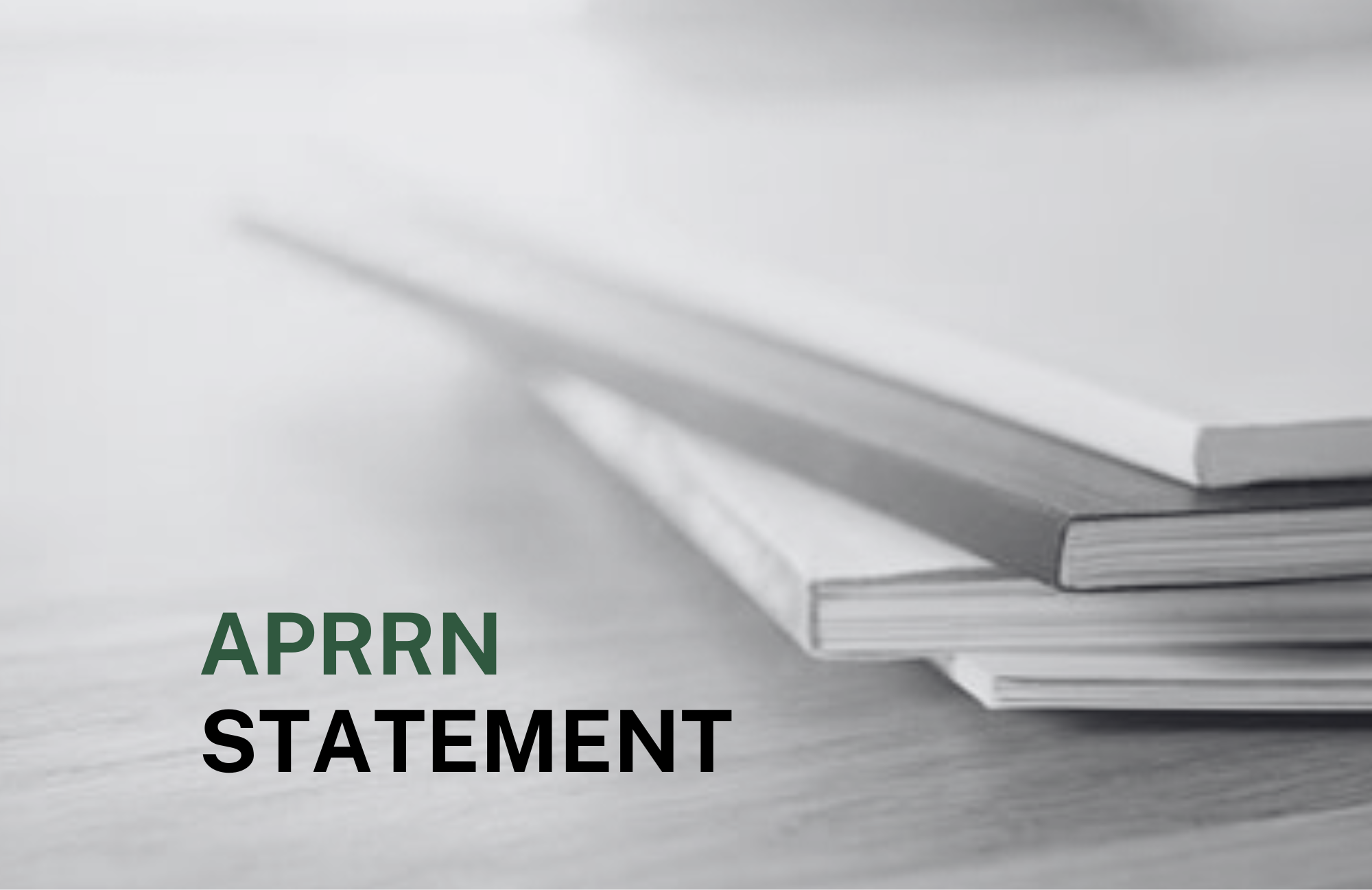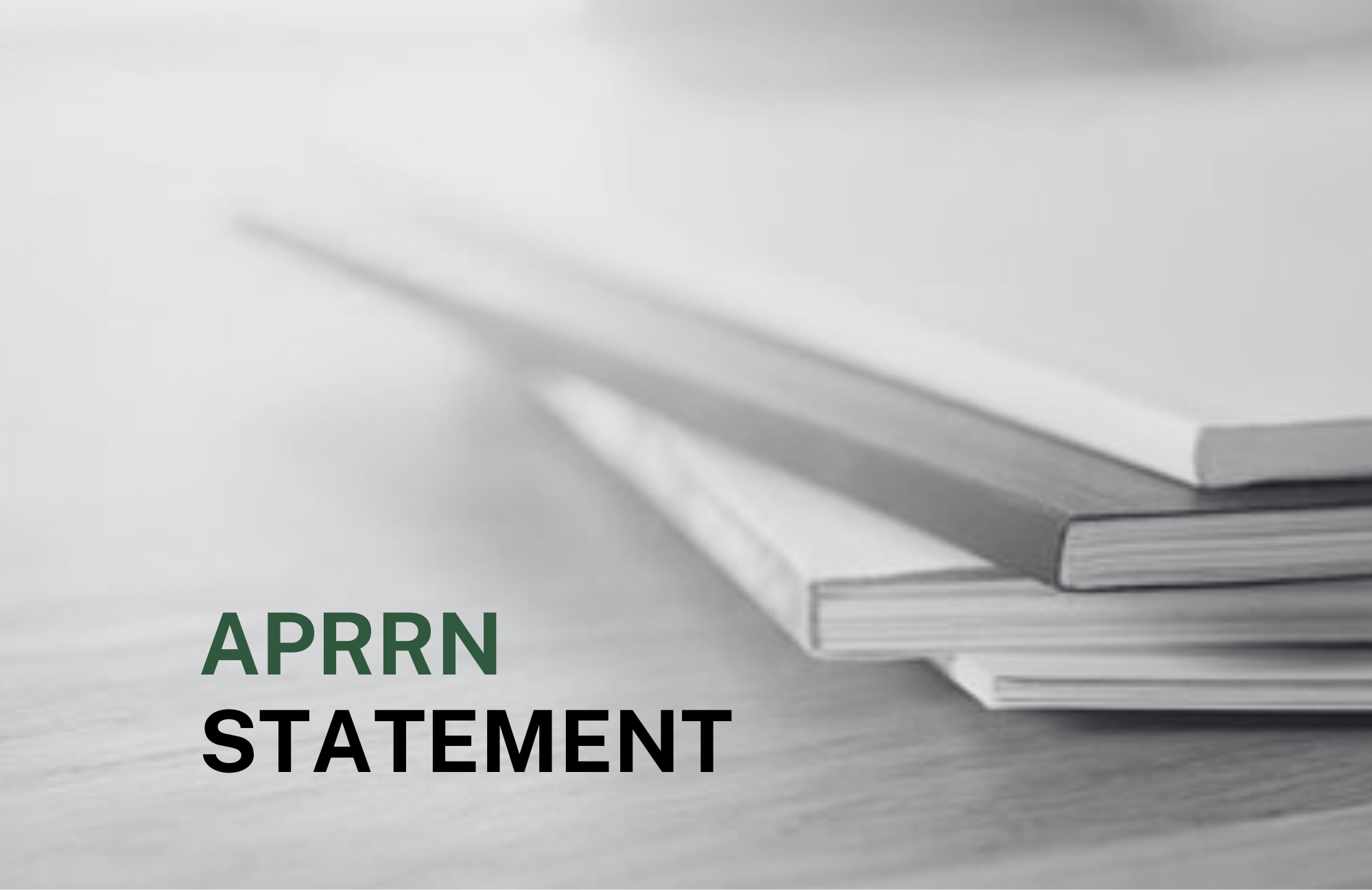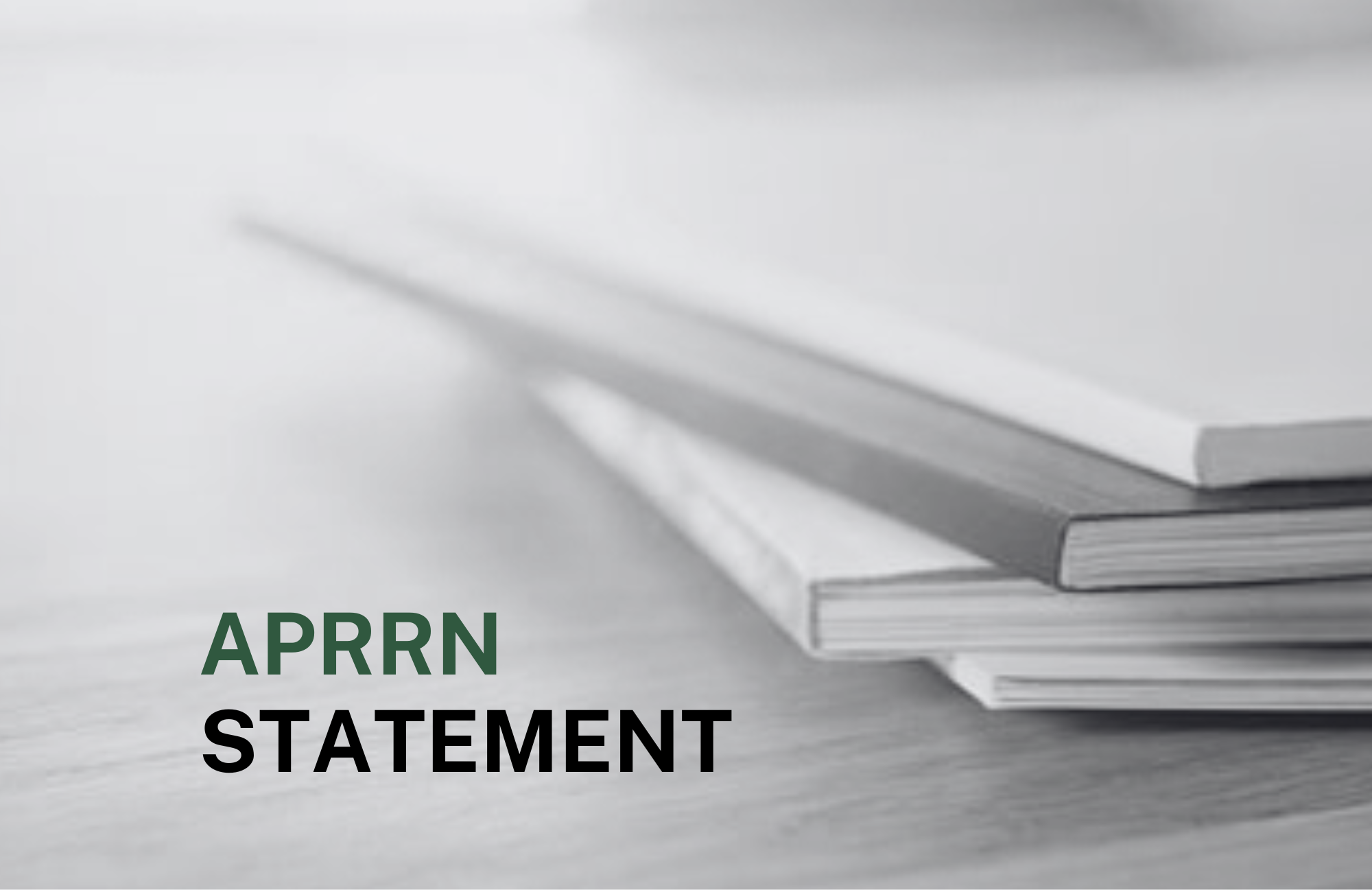URGENT STATEMENT: Call On Asean Leaders To Prioritise Establishment Of Regional Protection Framework As Myanmar And Rohingya Crisis Worsens
9 May 2023
Bangkok, 9 May 2023: Ahead of the 42nd ASEAN Summit during 9 - 11 May 2023 and amidst increasing threats to life for people in Myanmar and the worsening conditions for Rohingya throughout the region, the Asia Pacific Refugee Rights Network (APRRN) calls on ASEAN Leaders to step up by initiating a coordinated response to people seeking protection. ASEAN Leaders need to prioritise the establishment of a regional protection framework during their Summit talks in order to coordinate responses and promote regional responsibility sharing amongst ASEAN Member states. What better opportunity to show that ASEAN really matters, than when people of ASEAN are in need of safety, rights and protection.
Nearly six years after the mass exodus of Rohingya from Myanmar in 2017, and following decades of persecution, conditions for Rohingya have continued to deteriorate. The lack of durable solutions and coordinated approaches to build a regional protective environment for the Rohingya reflects and reinforces a normalisation of violence against and marginalisation of Rohingya in every context - in Rakhine state in Myanmar, in the camps in Bangladesh, on dangerous boat journeys, in immigration detention centres and in the struggle for basic rights in every aspect of their lives.
As the crisis has officially become protracted, the responses to it remain chronically underfunded. As of 1 May, the Joint Response Plan (JRP) in Bangladesh, which supports the basic humanitarian needs of over 978,000 Rohingya refugees in Cox’s Bazar and on the island of Bhasan Char is 15.7% funded, and the Humanitarian Response Plan (HRP) in Myanmar, including Rakhine State, is only 9.8% funded1. In March, the World Food Programme cut the monthly food ration allowance for Rohingya in Bangladesh camps by 17%, described as “unconscionable” by two UN experts. “The most vulnerable, including children under five, adolescent girls, and pregnant and breastfeeding mothers, will be particularly exposed,” they added.2 According to a 28 April statement by United Nations Special Rapporteur on the situation of human rights in Myanmar, Tom Andrews, cuts by a further 20% are imminent. “This is an emergency. Further cuts will leave the Rohingya, already victims of genocidal attacks in Myanmar, at risk of starvation and drive thousands into boats and dangerous land routes in utter desperation,” he warned3.
At least five fires were reported in the camps since January - several deliberately lit - with one leading to the destruction of 2,664 shelters and displacing 5,274 people4. Additionally, increased violence by armed groups and a lack of livelihood and education opportunities has led to large numbers of Rohingya taking to risky journeys by boat, with the United Nations Refugee Agency (UNHCR) reporting a 360% increase in the number of Rohingya who attempted journeys by sea in 2022 when compared to 20215. Overland routes have resulted in the arrest of hundreds of Rohingya in Myanmar, Thailand and Malaysia6. Malaysian rights groups implored the Malaysian Government to take a stand against a new spate of xenophobic social media campaigns targeting Rohingya during the month of Ramadan, and a community of over 50 Rohingya were evicted from their host village in Penang7.
According to official UN figures, 84,400 Myanmar refugees have fled to other countries in the region since the coup, including an estimated 72,000 to India and Thailand.8 Thousands of refugees have also arrived in Malaysia and Indonesia. Additionally, the International Organization for Migration reported that an estimated 40,000 people were leaving Myanmar every month9. The recent airstrikes in north-western Sagaing region in Myanmar, one of the deadliest attacks since the military coup in 2021, was swiftly condemned by the United Nations and ASEAN in respective statements10 11, yet neither have followed through with concrete initiatives. It is estimated there are 1,477,000 internally displaced persons (IDPs) within Myanmar displaced since the coup.
Given this escalating violence in Myanmar and that entrenched discrimination and root causes of Rohingya displacement have been left unaddressed, the proposed repatriation pilot to voluntarily repatriate 1,000 Rohingya from camps in Bangladesh to Rakhine state is reprehensible. Rohingya Working Group (RWG) Deputy Chair, Chris Lewa says, “There is absolutely no safety. 150,000 Rohingya displaced by violence in 2012 are still in ‘internment camps' in central Rakhine ten years later. In 2022, more than 2,500 Rohingya were arrested in Myanmar alone for travelling without permission outside Rakhine State and face two to five years imprisonment for unauthorised travel.”
All ASEAN Member states are complicit in perpetuating through silence and neglect, failure to share responsibility, however, no one state or stakeholder can solve the Rohingya crisis alone.
Ahead of the 42nd ASEAN Summit, APRRN calls on ASEAN Leaders to show that ASEAN matters, by:
- Leading on the establishment of a regional protection framework, that is guided by the Bangkok Principles12 to guide and support protection centred and human rights based responses within and between ASEAN Members states, putting refugees safety before immigration enforcement.
- Support a clear roadmap to implement the Five-Point consensus on the situation in Myanmar that includes the Rohingya, and ensure concrete actions and timeframes are applied.
- Urge ASEAN States and the international community to explore and pursue ALL possible durable solutions: complementary legal pathways, increased resettlement, work rights, access to education and livelihoods, which can only be achieved through regional responsibility sharing led by ASEAN.
- Reject the normalisation of Rohingya marginalisation and urge ASEAN States and other actors to speak out against xenophobia, and take a proactive approach to welcome the Rohingya into communities and include them in all decision-making bodies, coordination mechanisms, and service provision schemes that affect the Rohingya.
- END -
1 OCHA, 2023, Rohingya Humanitarian Crisis Joint Response Plan 2023 , Myanmar Humanitarian Response Plan 2023
2 OHCHR, 2023, Bangladesh: UN experts appeal for immediate funding to avert food ration cuts for Rohingya refugees
3 OHCHR, 2023, United Nations Special Rapporteur on the situation of human rights in Myanmar
4 OHCA, 2023, Bangladesh: Humanitarian Response to the Fire in Rohingya Refugee Camp 11. Impact and Response Report
5 UNHCR, 2023, UNHCR Protection at Sea in South East Asia - 2022 in Review
6 The Diplomat, 2023, Rohingya Refugees Are Departing for Southeast Asia in Increasing Numbers
7 Lawyers for Liberty, 2023, Government must curb the rising sentiment of hatred being spread against the Rohingyas
8 UNHCR, 2023, Myanmar Emergency Update
9 International Organisation for Migration, 2023, Myanmar Crisis Response Plan
10 UN News, 2023, Myanmar: UN condemns deadly military airstrike on crowd of civilians
11 ASEAN, 2023, ASEAN Chair’s Statement on the Recent Air Strikes in Pa Zi Gyi Village, Kanbalu Township, Sagaing Region of Myanmar
12 Asian-African Legal Consultative Organization (AALCO), Bangkok Principles on the Status and Treatment of Refugees ("Bangkok Principles"), 31 December 1966, available at: https://www.refworld.org/docid/3de5f2d52.html [accessed 4 May 2023]
The Asia Pacific Refugee Rights Network (APRRN) is a network of over 220 civil society organisations and individuals from 29 countries committed to advancing the rights of refugees in the Asia Pacific region. APRRN aims to advance the rights of refugees and other people in need of protection through joint advocacy, capacity strengthening, resource sharing and outreach.
Contact
Asia Pacific Refugee Right Network: Hafsar Tameesuddin, Co-Secretary General, APRRN, Email: sg.hafsar@aprrn.org
Lilianne Fan, Chair, Rohingya Working Group, APRRN, Email: lilianne.fan@gmail.com
Recommended

May 22, 2025
APRRN Urgent Appeal to the Government of Pakistan to Immediately Halt Forced Deportations of Afghan Refugees
The Asia Pacific Refugee Rights Network (APRRN) express our grave concern over the ongoing forced deportations of Afghan refugees by the Government of Pakistan under the so-called “Illegal Foreigners Repatriation Plan.” In April 2025 alone, some 144,000 Afghans returned from Pakistan, including nearly 30,000 who were deported.

Oct. 5, 2024
Urgent Statement on the Rohingya Crisis and the Need for Regional Protection
We express our deep concern over the ongoing Rohingya crisis and the lack of a comprehensive and coordinated regional response to protect refugees in Southeast Asia. As the situation continues to deteriorate, we call for immediate action from ASEAN, its member states, and the international community.

Sept. 4, 2024
APRRN calls on Home Minister Saifuddin Nasution to free children in Malaysia!
“While children are killed and maimed in Myanmar, Palestine, and other countries around the world, Malaysia keeps those who have fled locked up indefinitely for seeking safety in its territory. This is wrong and unacceptable and must be changed in law and practice.” APRRN’s Co-Secretary General, Hafsar Tameesuddin.